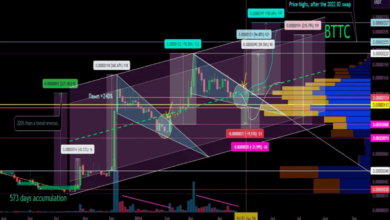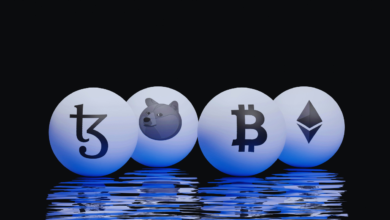OTC Crypto Trading for Secure High-Volume Transactions

Handling large crypto transactions through regular exchanges often leads to market disruptions, slippage, and privacy concerns. That’s where OTC crypto trading steps in as a practical alternative. Designed for high-volume trades, OTC desks provide a direct, secure channel for executing transactions outside the public order books. These platforms are trusted by institutional investors, crypto whales, and venture funds looking for smooth, discreet settlements.
As cryptocurrency adoption grows globally, the need for scalable and secure trading solutions is also rising. OTC crypto desks have emerged as the ideal gateway for sizable trades, offering personalized broker assistance, tailored settlement terms, and access to deeper liquidity. Whether you’re converting millions in Bitcoin or negotiating cross-asset transfers, OTC channels deliver efficiency without the noise of the open market.
How Does Over-the-Counter (OTC) Crypto Trading Operate?
OTC crypto trading is a method where large cryptocurrency transactions occur privately between two parties, bypassing public exchange order books. Instead of matching buy and sell orders on platforms like Binance or Coinbase, traders connect directly through brokers or dedicated OTC desks. This setup enables smoother and more confidential deals, especially for high-volume trades. OTC desks help avoid the price fluctuations and slippage that often occur on traditional exchanges when large amounts of crypto are bought or sold.
By removing the visibility from public markets, these desks ensure discretion. They also provide personalized support, helping clients negotiate pricing, settlement terms, and compliance steps. This method is favored by institutions, high-net-worth individuals, and miners. Settlement speeds are often faster, and the risk of price manipulation is reduced. In essence, OTC trading is tailored for those seeking efficiency and privacy at scale.
Comparison Between OTC and Exchange-Based Crypto Trading
OTC crypto trading offers private, high-volume transactions with minimal market impact, while exchange-based trading is more public and suited for smaller volumes. OTC desks offer negotiated prices and individualized assistance. In contrast, exchanges rely on open order books with real-time market rates.
| Feature | OTC Crypto Trading | Exchange-Based Trading |
| Volume Handling | High-volume trades (100K+ USD) | Low to moderate volume |
| Market Slippage | Minimal to none | Often high for large trades |
| Price Transparency | Negotiated pricing | Market-driven prices |
| Anonymity and Privacy | High | Lower due to public order books |
| Settlement Speed | Fast and pre-arranged | Depends on network and exchange |
| Personalized Service | Dedicated broker support | Self-service platform |
Why High-Volume Traders Prefer OTC Desks
For anyone moving large amounts of crypto—say, $250,000 or more—OTC desks offer distinct advantages. Public exchanges often lack the liquidity to handle such transactions without shifting the market price significantly. This is known as slippage and can result in substantial losses for large traders. By making deals outside of the open market, OTC desks reduce this risk.
Types of Clients Who Use OTC Crypto Services

OTC crypto services cater to a wide range of high-volume clients who require discretion and efficiency. OTC desks are frequently used by institutional investors to reallocate big assets without influencing market prices. Venture capitalists and hedge funds turn to these platforms for strategic investment moves. Crypto miners, who accumulate significant crypto over time, frequently sell through OTC to avoid slippage. High-net-worth individuals, or “whales,” use OTC to privately manage their crypto portfolios.
Family offices and private equity firms also utilize OTC desks for cross-asset diversification. These clients benefit from custom settlement options, compliance support, and direct access to liquidity. For them, speed, trust, and control are non-negotiable. OTC trading offers all of that—quietly and efficiently.
Popular OTC Platforms and Their Features
Popular OTC crypto platforms like Binance OTC, Coinbase Prime, and Kraken OTC offer secure, high-volume trading with minimal slippage. They offer individualized broker services and support a large variety of assets. Each platform has unique features like 24/7 desks, fiat settlement, and institutional-grade security.
| OTC Platform | Supported Assets | Minimum Trade Size | Unique Feature | Regulatory Status |
| Binance OTC Desk | 30+ Cryptos | $10,000 | Integrated with exchange wallet | Regulated (Varies) |
| Coinbase Prime | Major Cryptos | $250,000 | Custody + OTC + Analytics suite | SEC-Registered |
| Kraken OTC | 40+ Cryptos | $100,000 | 24/7 desk support | Compliant in the US |
| Genesis Trading | BTC, ETH, Others | $50,000 | Institutional-grade infrastructure | FinCEN-Registered |
| Galaxy Digital | Select Tokens | $150,000 | Tailored to hedge funds | Regulated in the US |
Advantages of OTC Crypto Trading
OTC crypto trading offers significant advantages for high-volume traders who prioritize discretion, efficiency, and control. It prevents market slippage by keeping large trades off public exchanges. Transactions remain confidential, appealing to institutional clients and wealthy individuals. Settlement terms are highly customizable, including options for fiat and delayed transfers.
Additionally, OTC desks offer committed broker support, guaranteeing that every trade is handled carefully. These platforms also access enormous liquidity pools, which facilitate the seamless execution of large transactions. The overall experience is tailored, secure, and streamlined. For serious traders, OTC is often the smarter path.
Reduced Market Impact
One of the biggest advantages of OTC crypto trading is avoiding the disruptive effects large trades can have on open markets. When significant amounts of crypto are moved through traditional exchanges, it often leads to sudden price shifts—known as slippage. OTC desks eliminate this issue by executing trades off the public order book, preserving market stability and protecting the trader’s value.
Higher Levels of Privacy
OTC transactions offer a layer of discretion that traditional exchanges simply can’t match. Since trades occur privately between two parties or through a broker, there’s no exposure to public tracking or third-party monitoring. This is particularly beneficial for clients who value confidentiality, including institutional investors and high-net-worth individuals looking to protect their holdings and trading strategies.
Customized Settlement Terms
Flexibility is another major plus of OTC trading. Desks can tailor settlement terms to the client’s needs—whether it involves converting crypto to fiat, delaying settlement until a certain event, or even executing a series of trades across multiple tokens. This level of customization is rarely possible on centralized exchanges, making OTC ideal for complex or time-sensitive deals.
Dedicated Support and Consultation
Unlike exchange platforms that rely on self-service models, OTC desks often assign a dedicated broker or account manager to assist with trades. This personalized support includes price negotiation, compliance guidance, and strategy consultation, all designed to optimize outcomes. For high-stakes transactions, having an expert on board can make a significant difference in both speed and accuracy.
Enhanced Liquidity
OTC desks typically aggregate liquidity from various sources—exchanges, private pools, and institutional partners. This broader access allows them to fulfill large orders efficiently, even during times of low market activity. For traders dealing in millions of dollars’ worth of crypto, this robust liquidity is crucial to executing trades quickly without unfavorable price changes.
Risks Involved in OTC Crypto Transactions
While OTC crypto trading offers major advantages for large-scale investors, it’s not without its risks. These hidden challenges can affect both the speed and security of your transaction if not handled carefully:
Counterparty Risk: OTC trades are executed peer-to-peer, meaning there’s no automatic enforcement like on centralized exchanges. If the other party fails to deliver, you could lose funds or crypto — especially when dealing with unverified brokers or unregulated platforms.
Regulatory Issues: Not all OTC desks operate under the same financial oversight. Some may be operating in gray zones or jurisdictions with loose crypto regulations. This exposes traders to legal complications or compliance issues, particularly for institutional clients.
Delayed Settlements: Unlike instant exchange-based trades, OTC transactions—especially larger or cross-border ones—can take hours or even days to settle. This delay can be risky in volatile market conditions, where price movements can hurt either side of the deal.
Lack of Market Price Reference: In OTC deals, prices are privately negotiated. Without a transparent order book or live price feed, traders might accept deals that are worse than real-time market value — especially if the desk is less competitive or biased.
How to Choose the Right OTC Trading Desk
Finding a trustworthy OTC desk is crucial, especially when you’re trading six or seven figures’ worth of digital assets. Don’t just go for a big name—scrutinize these factors:
Regulation and Licensing: Always ensure the OTC desk is properly registered in a country with strict financial regulations. A licensed desk offers more accountability and follows compliance measures like KYC and AML checks.
Trade Limits: Not all OTC services handle the same transaction sizes. Some desks cater to institutional clients, while others may have lower minimums. Confirm if the platform supports your typical trade volume before engaging.
Asset Support: Need to trade in lesser-known tokens or stablecoins? Make sure the OTC desk supports the specific assets you’re targeting. Some platforms specialize in Bitcoin and Ethereum only, while others offer a broader portfolio.
Fee Transparency: Beware of hidden charges. Ask for a complete, upfront breakdown of all fees, including service, conversion, and settlement charges. Lack of fee clarity is often a red flag.
Customer Service: 24/7 customer support is a must, especially for global traders who operate across time zones. You want immediate assistance if something goes wrong during settlement or confirmation.
Settlement Methods: For desks that offer a variety of settlement channels like bank wire transfers, USDT/USDC stablecoins, or direct fiat deposits. This flexibility ensures smoother liquidity handling based on your preferred method.
The Future of OTC Crypto Trading
As cryptocurrency continues to mature, Over-the-Counter (OTC) trading is set to play a more strategic role in global finance. The next wave of innovation in this space revolves around automation and decentralization. Advanced AI-powered trade-matching engines will soon replace manual price negotiations, allowing buyers and sellers to connect faster and with greater accuracy. Additionally, smart contract-based settlements are being introduced to eliminate third-party risks and delays, ensuring near-instant, trustless trade execution.
Another transformative trend is the rise of DeFi-integrated OTC platforms. These systems combine the privacy and flexibility of OTC trading with the transparency and automation of decentralized finance. Such platforms enable programmable liquidity, custom pricing logic, and cross-chain trades without relying on centralized desks.
Final Thoughts on OTC Crypto for Serious Traders
For large-scale investors, OTC crypto trading remains a game-changing solution. It removes the friction and visibility associated with traditional exchanges, enabling confidential, high-value transactions without triggering price volatility. This makes it an ideal route for hedge funds, family offices, mining operators, and high-net-worth individuals. That said, OTC trading isn’t meant for everyone. Casual investors may find better transparency and ease of use on centralized platforms.
But for serious traders, the bespoke service, personalized price discovery, and deep liquidity pools provided by OTC desks are invaluable. As governments begin to regulate digital assets more clearly and platforms adopt enterprise-grade compliance tools, the OTC market is becoming a cornerstone of the professional crypto economy. It’s no longer just a workaround — it’s a robust, strategic option for crypto power players.
Wrapping up
In today’s fast-paced digital economy, high-volume traders need more than just access—they need precision, privacy, and reliability. OTC crypto trading answers that call by offering a flexible, secure, and professional environment for large-scale transactions. With the ability to avoid market slippage and gain dedicated support, these desks are becoming an integral part of the crypto infrastructure.
While not suited for casual traders, OTC services provide unmatched advantages for institutions and large-scale investors. As regulatory clarity improves and technology advances, OTC crypto platforms will likely continue growing as the backbone for serious digital asset exchanges worldwide. For those ready to trade big, trading smart starts with OTC.
FAQs
What is the minimum amount required for OTC crypto trading?
The minimum threshold for OTC crypto trading typically ranges from $10,000 to $250,000, depending on the platform and its clientele. Institutional desks might even set minimums starting at half a million dollars or more. It’s crucial to verify these requirements beforehand, especially if you’re a private investor. Some services also offer tiered access based on trading volume and client history.
Is OTC crypto trading legal and regulated?
Yes, OTC crypto trading is legal in many countries that permit cryptocurrency transactions. However, the level of regulation varies based on the region and the platform you choose. Licensed services like Kraken OTC or Binance Institutional follow stringent KYC/AML laws. Traders must ensure they’re using desks that comply with their local laws to avoid legal or tax-related issues later on.
Can individuals access OTC crypto trading, or is it only for institutions?
Although OTC desks are designed primarily for institutional use, high-net-worth individuals (HNWIs) can often gain access if they meet certain conditions. These may include identity verification, minimum trade limits, and sometimes a long-term engagement. More modern OTC services have started catering to private crypto investors looking for discreet and customized trading options.
How does settlement work in OTC crypto trades?
Settlement processes in OTC trades are flexible and based on mutual agreement. They can occur in real-time or be delayed depending on trade size, regulatory checks, and preferred settlement method. Transactions can be crypto-to-crypto, fiat-to-crypto, or stablecoin-based. Most desks use secure, pre-approved wallets or escrow systems to ensure transaction integrity and reduce counterparty risk.
Are prices better on OTC desks compared to public exchanges?
OTC desks often offer more favorable pricing for large-volume trades, especially when compared to slippage on public exchanges. Since they aggregate liquidity from multiple sources, they can fulfill bulk orders without disturbing the market. However, pricing is negotiated privately and can vary based on trade size, urgency, and asset type—so it’s not always guaranteed to beat live exchange rates.
What are the common fees associated with OTC crypto trading?
Fees in OTC crypto trading usually include service charges, spread margins, and sometimes transaction handling fees. Unlike public exchanges with flat rates, OTC desks operate with customized fee structures based on your volume and asset preferences. It’s to ask for a full fee disclosure upfront. Transparent desks will always provide a no-surprise policy when quoting their trades.
How do I verify the trustworthiness of an OTC crypto desk?
To ensure you’re working with a reliable OTC desk, for proper licensing, verified customer reviews, and strong compliance records. Always check whether they follow KYC/AML protocols and are recognized by a governing financial authority. Additionally, desks that offer escrow services, audited processes, and 24/7 client support are typically more trustworthy and better suited for high-volume traders.




